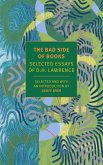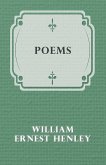In "Robert Burns," John Campbell Shairp deftly combines biographical narrative with literary analysis to illuminate the life and work of Scotland's iconic poet. Shairp employs a lyrical yet academic style, rich in historical context, which enhances the understanding of Burns' artistry and the socio-political milieu of 18th-century Scotland. The book delves deep into the themes of nature, love, and social consciousness that pervade Burns' poetry, offering keen insights into his use of vernacular and universal themes that resonate across cultures and eras. John Campbell Shairp, a notable scholar and poet in his own right, was deeply influenced by the Romantic movement and the Scottish literary renaissance. His passion for Burns was not merely academic; it stemmed from a profound appreciation for Scottish identity and cultural heritage. Shairp's background in literature and philosophy, along with his own experiences in Scotland, provide a rich framework for exploring Burns' ethos and artistry. This book is a must-read for anyone interested in Scottish literature, poetry, or the Romantic period. Shairp's engaging prose and thoughtful commentary breathe life into Burns' legacy, making it accessible to both scholars and casual readers alike. Through this profound exploration, readers will not only gain an appreciation for Burns but also understand his lasting impact in the literary world.
Dieser Download kann aus rechtlichen Gründen nur mit Rechnungsadresse in A, B, BG, CY, CZ, D, DK, EW, E, FIN, F, GR, H, IRL, I, LT, L, LR, M, NL, PL, P, R, S, SLO, SK ausgeliefert werden.









